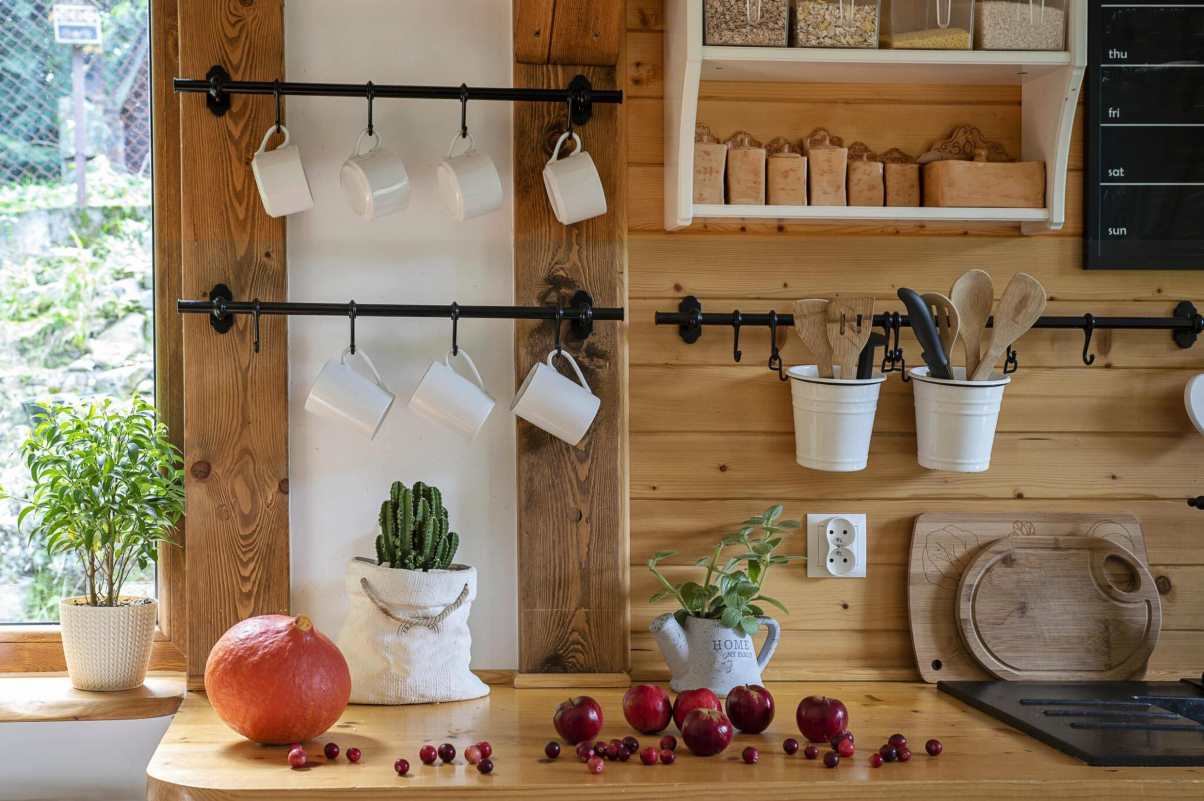
Healthy Homes, Healthy Planet: The Advantages of Eco-Conscious Kitchen Designs
In today’s world, where environmental concerns are at the forefront of global discussions, the concept of eco-conscious living has gained significant traction. One area where this ethos can be particularly impactful is in kitchen design. From reducing carbon footprints to promoting sustainable practices, eco-conscious kitchen designs offer a multitude of advantages for both homeowners and the planet.
In this comprehensive guide, we’ll explore the various benefits of embracing eco-friendly principles in kitchen design, from energy efficiency to waste reduction, and provide practical tips for creating a healthier home and planet.
Understanding Eco-Conscious Kitchen Design
Eco-conscious kitchen design revolves around the principles of sustainability, resource efficiency, and environmental responsibility. It encompasses a range of practices and features aimed at minimizing the ecological impact of kitchen spaces in homes in Pattaya while maximizing their functionality and aesthetic appeal.
From choosing eco-friendly materials to incorporating energy-efficient appliances and implementing waste reduction strategies, every aspect of the kitchen design process can contribute to creating a more environmentally friendly and healthy living environment.
Sustainable Materials
One of the cornerstones of eco-conscious kitchen design for your home is the use of sustainable materials. Opting for renewable, recycled, or reclaimed materials helps minimize the depletion of natural resources and reduces environmental harm.
Examples of sustainable materials include bamboo, cork, recycled glass, and reclaimed wood, which can be used for flooring, countertops, cabinetry, and other kitchen elements.
Energy Efficiency
Energy-efficient appliances play a crucial role in eco-conscious kitchen design. From refrigerators and dishwashers to stoves and ovens, choosing Energy Star-certified appliances can significantly reduce energy consumption and lower utility bills.
Additionally, incorporating features such as LED lighting, smart thermostats, and energy-efficient windows can further enhance the kitchen’s energy efficiency and minimize its carbon footprint.

Water Conservation
Water conservation is another important aspect of eco-conscious kitchen design. Installing low-flow faucets, aerators, and water-saving appliances like dishwashers and refrigerators with water filtration systems can help reduce water usage and minimize wastage.
Additionally, implementing simple practices such as fixing leaks promptly and using water-saving cooking techniques can contribute to overall water conservation efforts in the kitchen.
Advantages of Eco-Conscious Kitchen Designs
Embracing eco-conscious kitchen designs offers numerous benefits for both homeowners and the planet. Let’s explore some of the advantages in detail:
Environmental Preservation
By using sustainable materials, reducing energy consumption, and minimizing water usage, eco-conscious kitchen designs help preserve natural resources and minimize environmental degradation. This contributes to the conservation of biodiversity, reduction of greenhouse gas emissions, and protection of ecosystems, ultimately promoting a healthier planet for future generations.
Cost Savings
While eco-conscious kitchen designs may require an initial investment, they often result in long-term cost savings. Energy-efficient appliances and fixtures can significantly reduce utility bills over time, offsetting the upfront costs and providing ongoing financial benefits to homeowners.
Additionally, sustainable materials may require less maintenance and have a longer lifespan, further reducing long-term expenses.

Healthier Indoor Environment
Eco-conscious kitchen designs prioritize indoor air quality and occupant health by using non-toxic, low-emission materials and finishes.
By avoiding harmful chemicals and volatile organic compounds (VOCs), eco-friendly kitchens create a healthier indoor environment free from potential respiratory irritants and allergens. This is especially beneficial for individuals with asthma, allergies, or other respiratory conditions.
Enhanced Comfort and Well-being
Creating a kitchen that prioritizes sustainability and eco-conscious principles can contribute to a sense of well-being and comfort for occupants. From natural lighting and ventilation to ergonomic design features and biophilic elements, eco-friendly kitchens are designed to enhance comfort, productivity, and overall quality of life for homeowners and their families.
Positive Impact on Property Value
Eco-conscious kitchen designs are increasingly valued in the real estate market due to their environmental benefits and energy-efficient features. Homes with sustainable kitchens often command higher resale prices and attract environmentally conscious buyers seeking eco-friendly living spaces.
Investing in eco-conscious kitchen upgrades can thus increase the resale value of a property and provide a competitive edge in the housing market.
Practical Tips for Eco-Conscious Kitchen Design
Creating an eco-friendly kitchen doesn’t have to be daunting. Here are some practical tips to help you design a sustainable and environmentally responsible kitchen:
Choose Sustainable Materials
Opt for eco-friendly materials such as bamboo, recycled glass, reclaimed wood, and low-VOC paints and finishes for your kitchen surfaces, cabinetry, and flooring. These materials are renewable, recycled, or reclaimed, reducing the environmental impact of your kitchen design.
Select Energy-Efficient Appliances
Invest in ENERGY STAR-certified appliances, which are designed to consume less energy and water than conventional models. Look for energy-efficient refrigerators, dishwashers, ovens, and cooktops to minimize your kitchen’s energy consumption and lower your utility bills.
Maximize Natural Lighting and Ventilation
Take advantage of natural light and ventilation to reduce the need for artificial lighting and mechanical cooling. Position windows strategically to maximize daylight penetration and cross ventilation, creating a bright, airy, and energy-efficient kitchen environment.

Incorporate Smart Storage Solutions
Optimize storage space in your kitchen to reduce clutter and promote organization. Choose cabinets, drawers, and shelving systems that utilize space efficiently and accommodate your storage needs. Consider incorporating pull-out racks, lazy Susans, and vertical dividers to make the most of available space.
Practice Waste Reduction
Minimize food waste and packaging waste by embracing sustainable food storage and meal planning practices. Use reusable containers, compost food scraps, and buy ingredients in bulk to reduce packaging waste and minimize your kitchen’s environmental footprint.
Conserve Water Usage
Install water-saving fixtures such as low-flow faucets, aerators, and water-efficient dishwashers to reduce water consumption in your kitchen. Fix leaks promptly, reuse water when possible, and adopt water-saving habits such as scraping dishes before washing to conserve water and minimize wastage.
Embrace Indoor Plants
Bring nature indoors by incorporating indoor plants into your kitchen design. Not only do plants add visual appeal and a touch of greenery to the space, but they also help improve indoor air quality by absorbing pollutants and releasing oxygen. Choose low-maintenance houseplants that thrive in kitchen environments and contribute to a healthier indoor environment.
Conclusion
In conclusion, eco-conscious kitchen designs offer numerous advantages for homeowners and the planet alike. By prioritizing sustainability, resource efficiency, and environmental responsibility, eco-friendly kitchens promote environmental preservation, cost savings, healthier indoor environments, enhanced comfort and well-being, and positive impacts on property value.
By incorporating sustainable materials, energy-efficient appliances, water conservation measures, and waste reduction strategies, homeowners can create kitchens that are not only stylish and functional but also environmentally friendly and socially responsible.
With thoughtful planning, informed decision-making, and a commitment to eco-conscious principles, every kitchen has the potential to contribute to a healthier home and planet.



